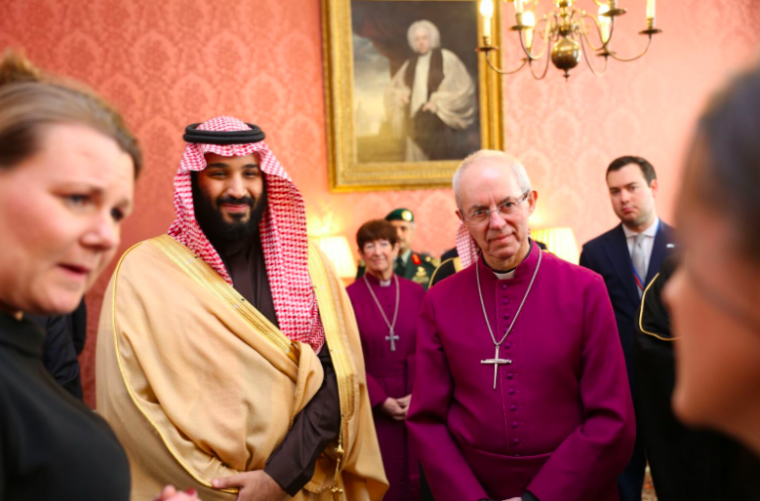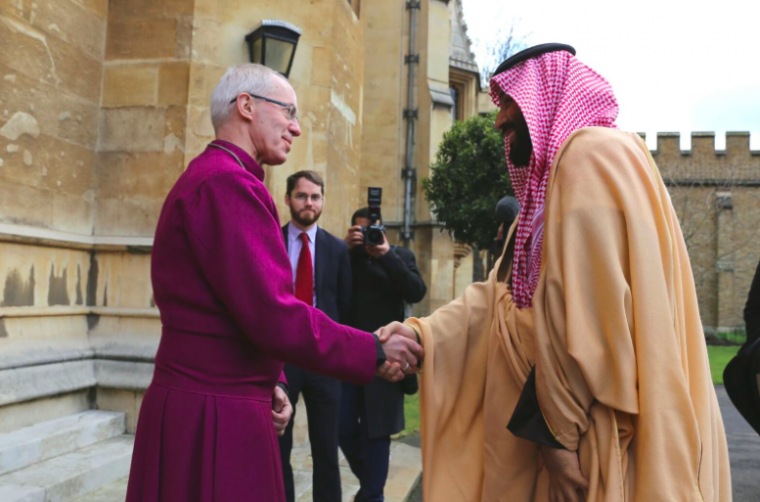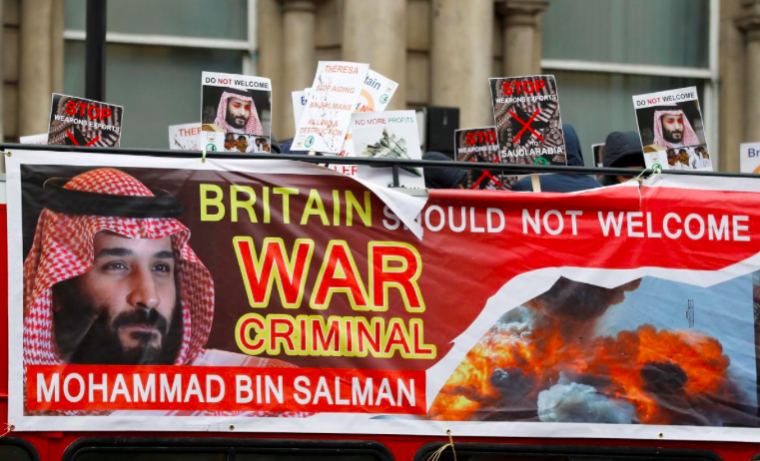Saudi crown prince vows to promote religious freedom in meeting with Welby
Saudi Arabia's crown prince has vowed to promote religious freedom in a private meeting with the archbishop of Canterbury in Lambeth Palace today.
Mohammed bin Salman is on a three-day visit to the United Kingdom and yesterday had lunch with the Queen and dinner with Prince Charles and Prince William.

In an hour-long private meeting with Justin Welby, described as 'cordial and honest', the crown prince 'made a strong commitment to promote the flourishing of those of different faith traditions and to interfaith dialogue within the Kingdom and beyond,' according to a statement from Lambeth Palace.
The 32-year-old Mohammed bin Salman is considered the presumptive heir to the 82-year-old King Salman and is seeking to promote his reforms moving Saudi Arabia's economy away from a reliance on oil.
The meeting at Lambeth Palace was also attended by one of the Church of England's first senior female bishops, Christine Hardman, the bishop of Newcastle, and Nick Baines, the bishop of Leeds.

During the discussion Welby pressed concerns over restrictions on Christian worship in Saudi Arabia where converting away from Islam is punishable to death and non-Islamic places of worship are banned.
He 'highlighted the importance for leaders of all faiths to support freedom of religion or belief, drawing on the experience of the UK', Lambeth Palace's statement said.
Welby also 'voiced his distress' about the ongoing conflict in Yemen where is fuelled by Saudi-led airstrikes and has been described by the United Nations as 'the world's worst humanitarian disaster for 50 years'. The war has killed an estimated 10,000 people with 8.3 million people depending on food aid and 400,000 children have life-threatening levels of malnutrition.
Welby asked 'that all that is possible be done to alleviate the suffering of civilian populations and to seek an end to the conflict'.

The persecution charity Open Doors ranks Saudi Arabia as the 12th worst country in the world to be a Christian.
'Wahhabism, a strict interpretation of Islam, dominates life in Saudi Arabia, and all Saudis are considered Muslims,' Open Doors said on its website. 'The legal system is based on Sharia (Islamic law), and it is illegal to evangelise Muslims; conversion to another religion is punishable by death. There are no church buildings at all, and house churches are raided; Christians risk arrest, imprisonment, lashing, deportation and sometimes torture.'
In his meeting with Welby, Mohammed bin Salman studied early texts from the Christian, Jewish and Islamic faiths held in the Lambeth Palace library.
'The Archbishop appreciated the opportunity to engage in this important conversation at Lambeth Palace, especially following the crown prince's visit with Pope Tawadros II on Monday at St Mark's Coptic Orthodox Cathedral in Cairo,' a statement said.











